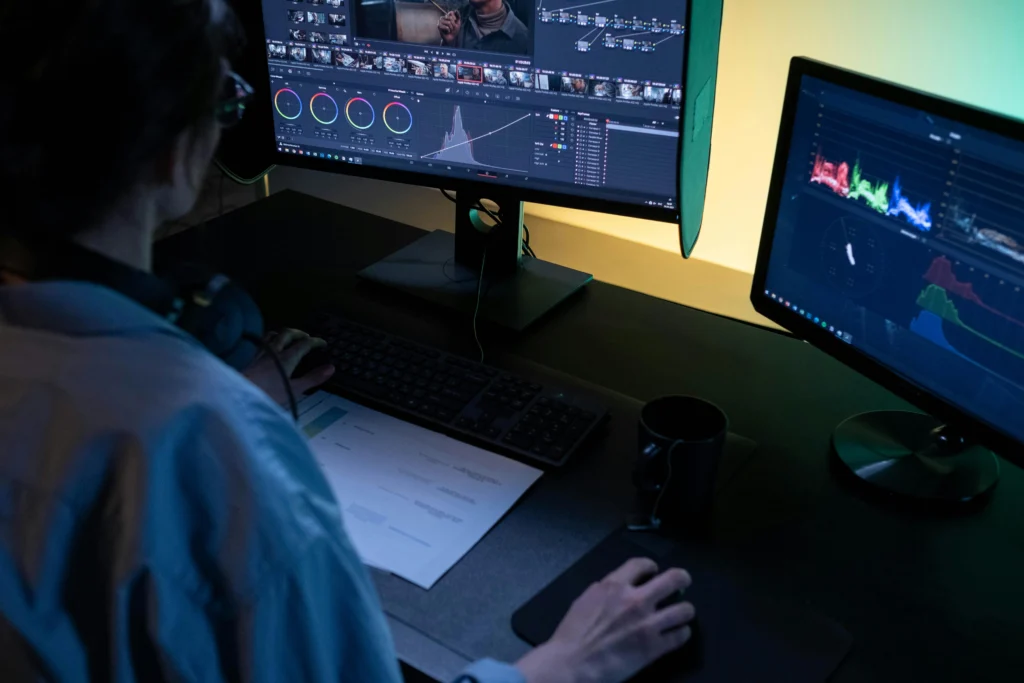How AI Is Transforming Content Marketing
The world of content marketing is unrecognizable compared to just a few years ago. Artificial intelligence (AI) has rapidly evolved from a peripheral tool to a central pillar in every major brand’s marketing strategy.
Its ability to automate, optimize, and personalize content creation has revolutionized how brands communicate with audiences, bringing extraordinary efficiencies, but also new challenges that threaten to undermine the integrity and uniqueness of digital storytelling.

The Bright Side: AI’s Positive Impact on Content Marketing
Hyper-Personalization at Scale
AI’s mastery of data analysis allows brands to deliver deeply personalized content to audiences at scale. Advanced natural language processing (NLP) models analyze thousands of data points, from browsing behavior to purchase history, ensuring content resonates with each individual’s preferences and intent.
Automated systems can segment audiences with laser precision, tailoring everything from email subject lines to entire landing page experiences. The result is higher engagement, better conversion rates, and stronger customer loyalty.
Speed and Efficiency
What once took creative teams several days or even weeks, brainstorming, writing, reviewing, and revising content, now happens in a matter of hours. AI-powered content generators can craft blog posts, product descriptions, video scripts, and social media calendars on demand.
This acceleration enables brands to react in real-time to emerging trends, breaking news, or customer feedback, seizing opportunities with unprecedented agility.
Data-Driven Insights
AI is not just about automation; it’s also the ultimate analyst. Tools embedded throughout the marketing stack monitor and interpret campaign performance, optimize content in real time, and predict upcoming trends.
Marketers receive continuous feedback loops, suggestions for titles, formats, and publishing times that maximize visibility across platforms. A/B testing on steroids, AI helps ensure every piece of content finds its best possible audience and outcome.
Expanding Creative Horizons
AI’s role is not merely functional; it’s increasingly creative. Generative models produce original artwork, compose music, draft storylines, and even suggest novel brand personas.
The integration of AI with augmented and virtual reality is producing immersive branded experiences, transforming static web pages into engaging, interactive narratives. For brands willing to experiment, AI is enabling a new era of storytelling.

The Dark Side: AI’s Negative Impact on Content Marketing
The Rise of Content Noise
With AI drastically reducing the barrier to content creation, the volume of branded material flooding digital channels has surged. Brands can now churn out hundreds or thousands of pieces per week, saturating feeds, inboxes, and search results.
But much of this content is generated from the same foundational prompts, templates, and frameworks, leading to a homogenization of brand messaging.
Consumers are increasingly bombarded by a deluge of lookalike blog posts, eerily similar ad copy, and recycled campaign themes. The ease and speed of production encourage brands to prioritize quantity over originality, creating a landscape where it’s harder than ever for any one voice to truly stand out.
Burnout and Audience Fatigue
The relentless pace and repetitive tone of AI-generated content are having a psychological toll. Digital burnout is becoming epidemic, as audiences tune out the endless stream of generic recommendations, offers, and listicles.
Consumers crave authenticity, creativity, and a sense that brands genuinely understand them, not just their data. When every brand sounds the same, engagement plummets and trust erodes.
Creativity Under Threat
While AI excels at reconstituting existing ideas, it can struggle with genuine creativity and emotional nuance. As brands increasingly rely on similar AI tools and models, innovation and experimentation risk being replaced by safe, predictable, algorithmically approved content.
There’s growing concern that the human touch, context, humor, cultural awareness, and bold risk-taking are being diluted.
Ethical and SEO Challenges
The volume of low-effort, AI-generated content is stressing platforms, editors, and search engines. Search algorithms are in a constant arms race to weed out spammy or duplicative content, leading some brands to see their visibility decline.
There are also ethical concerns: deepfakes, misinformation, and fabricated testimonials are easier to produce, requiring stricter safeguards and greater transparency in content sourcing.
For Better or Worse: What Used to Take Days, Now Takes Hours
AI has undeniably made content marketing faster, smarter, and more scalable. Marketing teams can do more with less, ideating, producing, and publishing on timelines that were once unimaginable. For brands, this means responding to trends instantly, delivering hyper-targeted offers, and entering new markets effortlessly.
But the very tools that enable this transformation are also fueling an arms race of sameness. As brands flock to the same AI-powered frameworks and templates, differentiation becomes more difficult. The democratization of content creation, while a marvel of technology, has unleashed a tidal wave of mediocrity, as competitors race to fill every digital crevice with the same stock phrases and visuals.
Consumers, inundated by this surge in content, are responding by filtering out the noise, disengaging, or gravitating to brands that can infuse their AI outputs with genuine originality and purpose.
Navigating the Future: How Should Brands Respond?
To thrive in the AI-driven content landscape, brands must balance the efficiencies of automation with a renewed investment in creativity and authentic human connection. Here’s how:
- Prioritize Quality Over Quantity: Resist the temptation to flood channels with AI-generated filler; focus on campaigns that deliver unique insights, perspectives, or experiences.
- Customize Beyond Prompts: Invest in custom AI models, unique data sets, and creative human oversight to ensure your brand’s outputs stay fresh and differentiated.
- Double Down on Human Creativity: Blend AI with teams of writers, designers, and strategists who can inject humor, empathy, and originality. Use AI as a collaborator, not a substitute.
- Stay Transparent: Disclose when content is AI-generated and educate audiences about your ethical guidelines.
- Monitor Burnout Signals: Track engagement and feedback to spot signs of audience fatigue; pivot strategies when metrics decline.
Concluding Thoughts About Generative AI Content Marketing
AI has permanently altered the content marketing landscape, streamlining creation, sharpening targeting, and multiplying possibilities. But as with any profound shift, the new efficiencies bring new risks.
Brands that harness AI thoughtfully, striving for authentic connections and creative differentiation, will lead the way. Those who simply chase the latest automation step risk fading into the background noise, indistinguishable from the flood of their competitors.
In 2025 and beyond, the brands that win will be those that remember: content is only marketing if it inspires, engages, and truly stands out. The tool may be artificial, but the connection must always be real.


